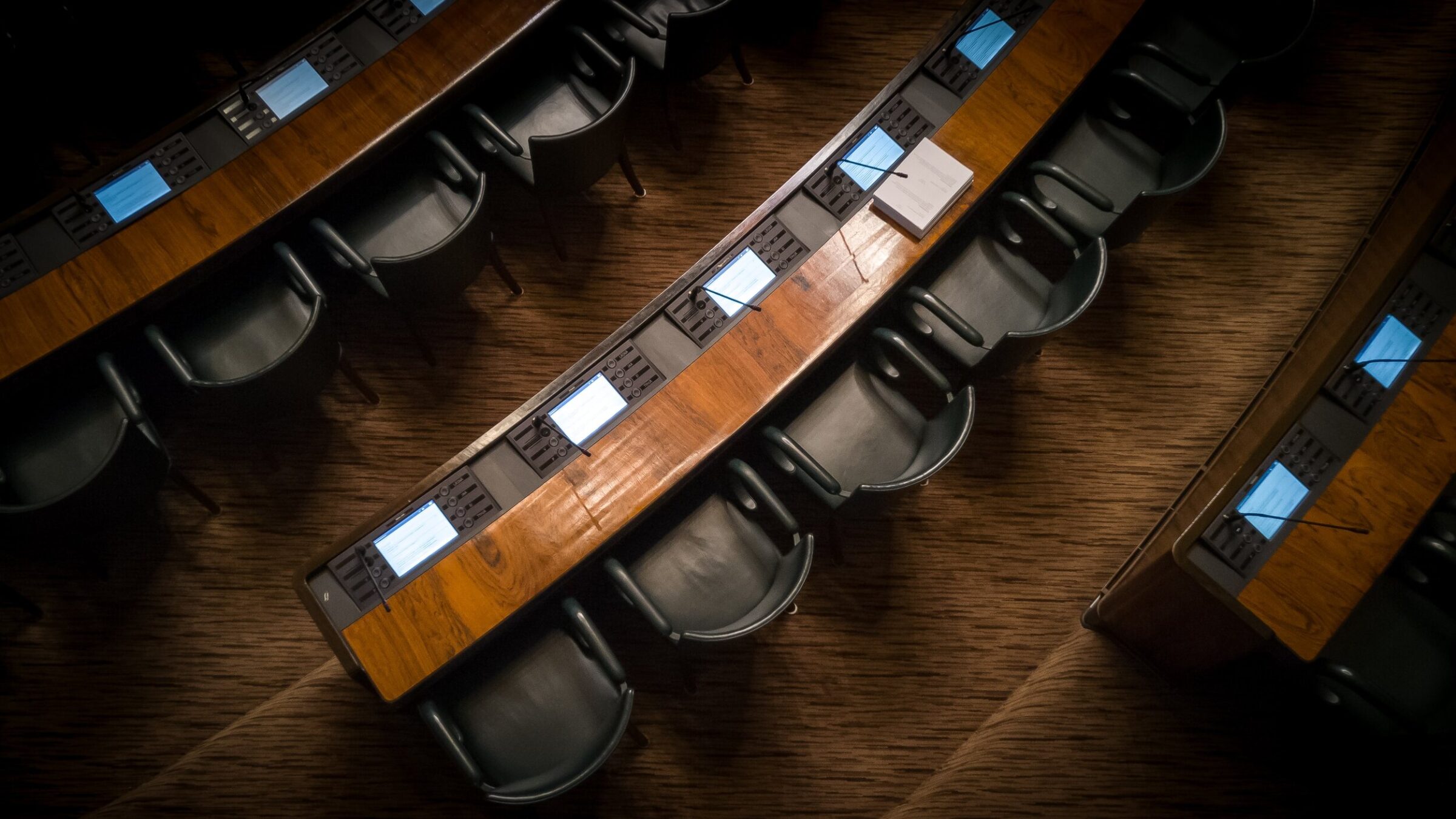CFC Members Lead Work on Modernization of Congress
March 25, 2020
This legislation was spearheaded by Congressional Future Caucus (CFC) member Congressman Derek Kilmer (D-WA-6) through his role as the Chair of the Select Committee on the Modernization of Congress.

On March 10, 2020, the House of Representatives agreed to H.Res. 756, the Moving Our Democracy and Congressional Operations Toward Modernization Resolution. The vote was 395–13 in favor. This legislation was spearheaded by Congressional Future Caucus (CFC) member Congressman Derek Kilmer (D-WA-6) through his role as the Chair of the Select Committee on the Modernization of Congress. The Committee, a once in a generation body tasked with modernizing Congress, was created at the beginning of the 116th Congress and is evenly split with six Democrats and six Republicans, including CFC members Kilmer and Rep. Rodney Davis (R-IL-13). The resolution offered a number of suggestions for ways in which Congress can update chamber rules and procedures, bringing the legislature fully into the 21st century. In a press release, Rep. Kilmer, chair of the committee, said the recommendations “share a common goal of making Congress more responsive, transparent and accessible for every American”.
H.Res. 756 centers around five main ideas:
- Streamlining and reorganizing human resources
- Improving orientation and education opportunities for new and current members and employees
- Modernizing and revitalizing technology
- Making the House more accessible
- Improving access to documents and publications.
Recommendations on hiring and human resources focus on making the hiring process more efficient as well as promoting diversity and inclusion in House offices. This is achieved in part by making the newly-formed Office of Diversity and Inclusion a permanent body in the House. The committee’s suggestions on orientation and education for members in part aim to improve bipartisanship among new members by ensuring that “the orientation services provided to new Members… are provided in a nonpartisan manner”. In a Roll Call article about the passage of the resolution, committee member Rep. William Timmons (R-SC-4) specifically praised the effort to foster bipartisan relationships.
Addressing technological gaps makes up a large portion of the committee’s proposal to modernize Congress. The resolutions promote advancement in this area in several ways: by reforming the Office of House Information Resources, streamlining the approval process for new technology vendors, leveraging the bulk purchasing power of the House, and more. Accessibility is the final large component of the resolution; the resolution seeks to ensure that every American can navigate House websites and the Capitol grounds, and urges Congress to provide clear sources of information on the proceedings of Congress for the general public.
One can already see the impact of these reforms through the lens of current coronavirus responses. A key part of the resolution relevant to the current crisis, Section 302(3), states that members and employees must be able to seamlessly and securely access the House network at all times. This is crucial in a forced telework situation and allows for important functions, like constituent casework, to continue from outside the office. Section 302 also allows members to electronically sign legislation, official correspondences, and constituent consent forms, enabling them to perform these tasks remotely.
While the legislation was not designed specifically to allow Congress to react to a crisis, it is already performing that function. This bipartisan reform that moves Congress forward should be seen as a huge victory and a great example of how members of the Future Caucus are working toward a better and more modern society.






Join 1,900+ BIPARTISAN LEADERS NATIONWIDE
Be a part of a network of lawmakers committed to governing effectively, passing more representative public policy, and increasing public trust in democracy.